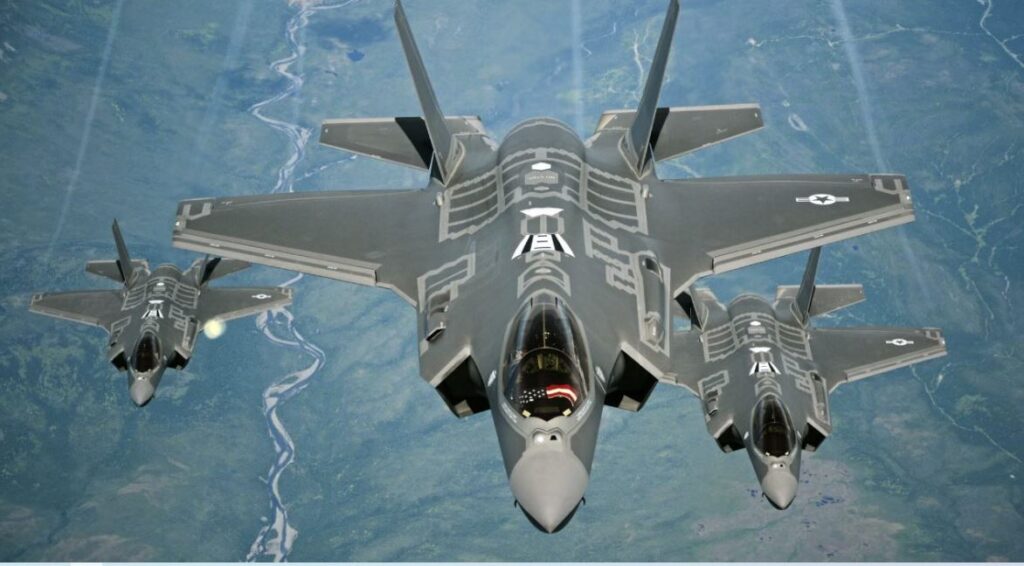The F-35 has been approved for full-scale production. In March, the US Department of Defense announced the long-awaited news. The F-35 is finally entering production. This aircraft was first flown almost twenty years ago.

However, various questions have been raised about the aircraft among US officials. The F-35 is the most expensive weapons program in history.
This surprised many people because Lockheed Martin had already built about a thousand of these machines.
- Advertisement -
Learn about this aircraft The first version of the fifth-generation fighter jet, the F-35A, was introduced in 2006. In 2008, they tested the F-35B, and in 2010 – the carrier-based F-35C.
Production began in 2011. A year later the fighter was launched for training purposes and in 2015 it was put into service. First for the Marine Corps, then for the US Air Force and Navy.
But the plan was much more ambitious: in 2001 they promised to build 2852 by 2010. 23 years have passed, and the order portfolio including foreign customers has reached 3,481 units.
- Advertisement -
- 25 F-35 fighter jets
- 500 MK82 500-pound bombs
- 1,800 MK84 2,000-pound bombs
Exportation assumes a pivotal role: Washington, indeed, stands as the principal patron of the endeavor, albeit accompanied by 16 other nations: the United Kingdom, Italy, the Netherlands, Canada, Australia, Denmark, Norway, Japan, South Korea, Belgium, Poland, Singapore, Finland, Germany, the Czech Republic, and Switzerland. The constituent elements are fabricated across seven nations.
The collaborative effort in crafting the fighter aircraft is mirrored in its exorbitant cost. The F-35 project stands as the most financially burdensome military endeavor to date, with the United States Government Accountability Office appraising it at a staggering $1.7 trillion. Initially, Lockheed Martin had envisioned a budget seven times more modest, totaling $233 billion.
The cumulative expenses encompass the production, utilization, and maintenance of the combat planes. Notably, a substantial portion, amounting to $1.3 billion, is allocated to the upkeep of the aircraft’s operational status.
- Advertisement -

Over two decades, the F-35 has metamorphosed into an emblem not solely of America’s military-industrial prowess but also its exorbitant costs and protracted development. As per the findings of the US Government Accountability Office, each hour of flight aboard the F-35 incurs a taxpayer burden of $42,000.
At first blush, meeting the ostensibly straightforward criterion of supersonic flight for a fifth-generation fighter aircraft proved daunting. Particularly for variants intended for carrier-based operations, prolonged supersonic flight jeopardizes stealth capabilities. The stealth coating deteriorates, the fuselage develops fissures, and the tail-mounted antennas malfunction.
- Advertisement -

Deficiencies were also unearthed in the propulsion system, resulting in several mishaps. In December 2022, an F-35B met with disaster during a vertical landing in Fort Worth, prompting a suspension of delivery and acceptance flights for two months.
- Advertisement -
Pilots have also voiced grievances regarding hypoxia, tallying approximately 40 incidents, with one such event in May 2020 culminating in a crash, though the pilot survived. Numerous incidents have been attributed to software glitches, while issues have also arisen with the touted helmet, priced at $400 thousand – equivalent to the cost of a luxury sports car.
Testers have reported frequent unresponsiveness of the touchscreen instrument panel in the cockpit, estimated to occur in 20% of instances.
According to a September report by the Government Accountability Office, aircraft are partially combat-ready at 54.69%, with complete combat readiness achieved by only 27.75%, significantly below the desired levels.
- Advertisement -
NBC cited report author Dianne Maurer, who remarked, “If aircraft are only operable 55% of the time, while the target is 85-90%, taxpayers are not receiving commensurate value for their investment.”
The report further elucidated that in addition to extant issues, repair challenges have emerged due to a dearth of spare parts, compounded by the logistical complexities of operating across eight nations.
